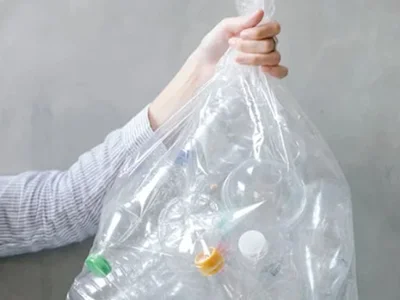Things about Reclaim Waste
Things about Reclaim Waste
Blog Article
Some Of Reclaim Waste
Table of ContentsExcitement About Reclaim WasteGetting The Reclaim Waste To WorkNot known Facts About Reclaim Waste9 Easy Facts About Reclaim Waste ShownReclaim Waste for Beginners
Discover the types, incidents, and forms of liquid waste. Residential sewage waste describes the waste and items from a domestic septic system. This kind of waste is produced by humans in homes, schools, and various other buildings. This only consists of septic storage tanks that have a drainpipe field. The proper monitoring and disposal of domestic sewer waste need fluid waste to be transferred to a sewer treatment plant where the proper approaches and equipment are put on purify and throw away waste.
Commercial waste typically includes prospective dangers, such as flammable materials or a blend of liquid and solid waste products, and calls for a much more sophisticated and detailed disposal process. The disposal of industrial waste generally includes the purification of waste prior to transportation to make sure secure and correct disposal. Industrial waste is created from by-products and overflow of commercial procedures and manufacturing.
This kind of waste can not use the exact same sewage administration transport or procedures as septic or commercial liquids. The hazardous waste monitoring procedure requires the evaluation and screening of fluid waste prior to it undergoes the disposal process (liquid waste removal). Drainage waste is the fluid waste that originates from drainage and excess stormwater in highly populated areas or cities
Runoff waste can cause contamination and flooding otherwise handled correctly. Discover more regarding sewage system cleaning and waste administration. Making sure appropriate waste administration can avoid catastrophes and decrease ecological injury. Both people in property settings and professionals in commercial or manufacturing sectors can benefit from understanding the procedures and laws of fluid waste administration.
Some Known Questions About Reclaim Waste.
Get in touch with PROS Services today to discover about our waste monitoring and disposal services and the appropriate means to take care of the fluid waste you produce.
(https://www.pubpub.org/user/leon-aube)This supposed 'wastewater' is not just a vital resource but, after therapy, will certainly be launched to our land, waterways or the sea. Used water from commodes, showers, baths, cooking area sinks, laundries and commercial procedures is understood as wastewater.

water utilized to cool down machinery or tidy plant and devices). Stormwater, a form of wastewater, is drainage that streams from farming and urban locations such as roof coverings, parks, yards, roadways, courses and gutters into stormwater drains, after rainfall. Stormwater streams untreated directly to neighborhood creeks or rivers, eventually reaching the sea.
Examine This Report on Reclaim Waste
In Queensland, many wastewater is treated at sewage therapy plants. Wastewater is transferred from domestic or industrial sites via a system of sewage systems and pump terminals, published here understood as sewerage reticulation, to a sewage therapy plant.
The Division of Natural Resources encourages city governments about handling, operating and keeping sewerage systems and treatment plants. In unsewered locations, neighborhood governments may call for owners to set up private or household sewer therapy systems to treat residential wastewater from commodes, kitchen areas, shower rooms and washings. The Department of Natural Resources authorises using house systems when they are confirmed to be efficient.
In some new neighborhoods, treatment of some stormwater to remove litter, sand and gravel has begun making use of gross pollutant catches. Wastewater therapy occurs in 4 stages: Gets rid of solid issue.
Makes use of little living organisms understands as micro-organisms to damage down and remove staying liquified wastes and great particles. Micro-organisms and wastes are integrated in the sludge.
Examine This Report about Reclaim Waste
Nutrient elimination is not offered at all sewage treatment plants due to the fact that it calls for pricey specialist devices. Clear liquid effluent produced after therapy may still include disease-causing micro-organisms - liquid waste disposal.

A lot of wastewater flows right into the sewerage system. Under the Act, neighborhood governments administer authorizations and permits for ecologically pertinent activities (Ages) involving wastewater launches that might have a regional impact.
The Ultimate Guide To Reclaim Waste
Monitoring supplies valid information about water high quality and can verify that permit problems are being satisfied. The details obtained with tracking supplies the basis for making water high quality choices.
Report this page